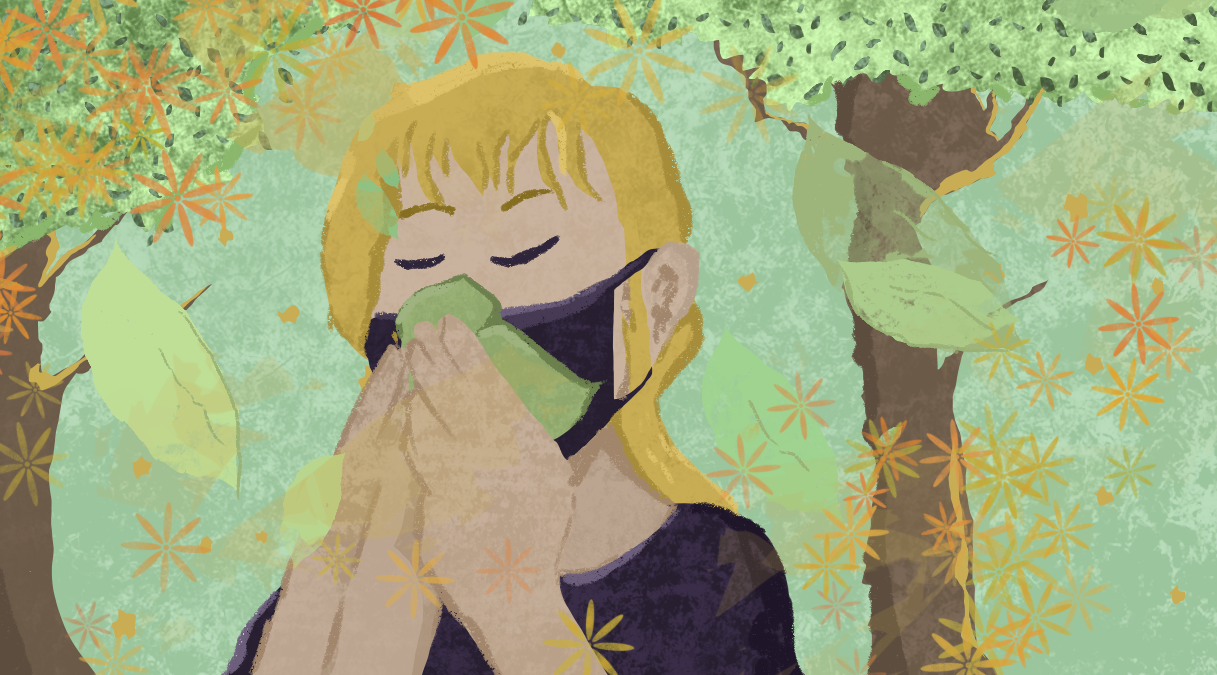
The blooming flowers and leafy trees mark the beginning of the dreaded allergy season for many people. Caused by the abundance of pollen that spring brings, seasonal allergies release a plague of nasty symptoms including sneezes, runny noses, and watery eyes. As the days get hotter, everyone will want to enjoy the warm weather and clear blue skies, but remember that allergies are always present and can occur when least expected.
With everyone returning to school and spending time outside, it’s likely that this allergy season will be much worse than the last. Taking time to reminisce about last April, allergies undeniably felt less severe. This makes sense as everyone was quarantined inside their houses for the majority of the day. However, this year, the irregular fluctuation in temperature causes allergies to be slightly unpredictable. In addition, according to Lauren Fox of AccuWeather, grass pollen counts will be above average, and tree pollen counts will be average in Pennsylvania this year. Depending on the type of allergies people have, many could be facing a grueling spring.
This spring offers many ups and downs, or, more fittingly, roses and thorns. It is clear that everyone is weary at the thought of attending one more Zoom meeting, and after months of online school, this period is finally coming to a close. For this reason, it is fantastic that students are finally allowed to return to school entirely in person. However, this could ultimately become a problem for a handful of students with seasonal allergies. For example, it is recommended that windows be open on bus rides to and from school, so the air can circulate better. This is good at protecting people against COVID-19 but bad at protecting them against the annoying pollen that flies through the open window and into their faces! For this reason, it’s suggested that anyone with seasonal allergies take some over the counter medicine like Zyrtec and Flonase to ease their symptoms.
Furthermore, it seems like allergies have always gone unnoticed by teachers and students who don’t suffer from them. However, it is likely this will change very soon. It is assumed that blowing your nose in the classroom is frowned upon. This is understandable, being that blowing your nose can spread coronavirus droplets through the air which disperse into the classroom. This creates a slight problem. People who suffered from seasonal allergies in the past may remember standing next to the tissue box in the back of the class for minutes at a time. Unless students are asked to blow their noses in the hallway, it is expected that they will be allowed to blow their noses in the classroom. Unfortunately, this could possibly spread COVID-19 to the rest of the class. Additionally, the common etiquette when someone sneezes is to politely say, “Bless you,” However, this customary action will surely change. Because sneezing is a symptom of COVID-19 as well, they are greeted with worried expressions and furrowed brows as every mind races. This is not only an uncomfortable experience for classmates, but it is an extremely unpleasant experience for the person who sneezed. As many people know, sneezing whilst wearing a mask is not very enjoyable. Despite these many challenges, the return to school and the beginning of spring are very exciting.






Adam Reisboard • Apr 24, 2021 at 8:11 AM
Nobody knows where James’ blows his nose….
But his sleeve is always shiny…..
Nice Job James!!